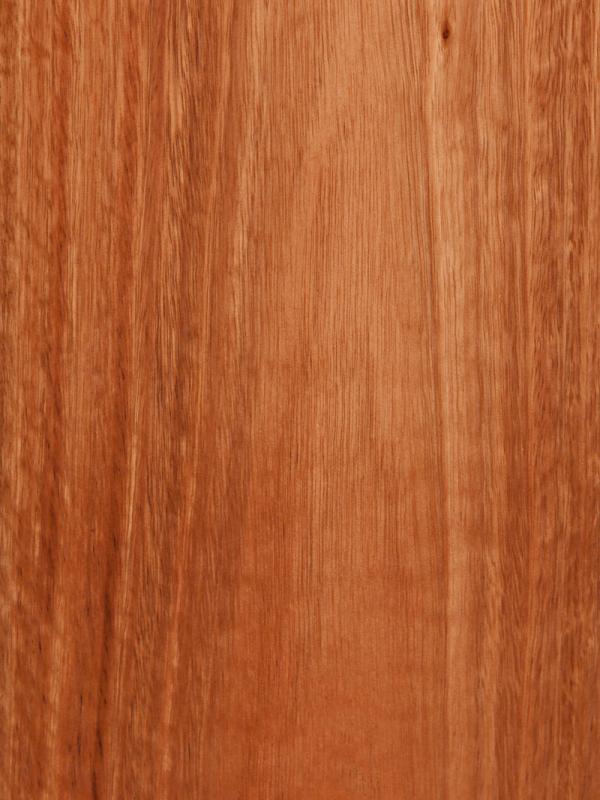
Family: Myrtaceae, hybrid of Eucalyptus Grandis and Eucalyptus Urophylla.
Origin: Grown in Brazil and distributed by, Weyerhaeuser, a North American forest company focused on sustainable forestry.
Common Names: Lyptus.
The Tree: Lyptus is the trade name of a wood that is harvested from a hybrid of two species of Eucalyptus trees, E. Grandis, and E. Urophylla. A Eucalyptus tree is tall with smooth bark, rough at the base fibrous or flaky and grey to grey, brown in color. The tree height can vary from 65 feet to 100 feet with a trunk 3-4 feet in diameter. The tree can reach maturity in about 14 to 16 years.
Appearance: Lyptus wood varies in color from dark red to light pink. The heartwood is red to pink and the sapwood is pale in color.
Density: The density varies depending on color, with the darker color like hickory in density and the lighter color like birch and ash in density. Specific gravity ranges from .60to .85. Janka Hardness is 1,420 pounds of force.
Drying and Shrinkage: Drying Lyptus s often compared to that of white oak, both of which need to be air-dried under controlled conditions for 6 to 9 months. Lyptus is known to have high seasonal movement. The average dried weight is 53 pounds per cubic foot. Shrinkage values are 8.2% radial, 12.8% tangential, 21% volumetric.
Working Properties: Working with Lyptus presents few challenges. Given the uniformity of the grain, it machines and mills very well. However, with its high density, it can burn when being worked. It glues well. Nails and screws should be pre-drilled. It takes both oil and water-based stains very well.
Durability: The durability of Lyptus is comparable to oak and hard maple. Heartwood is moderately durable to decay resistance, though it is susceptible to insect attack.
Uses: Lyptus has been compared to both black cherry and mahogany for its use. It can be used not only as a substitute for those species, but for many other common hardwoods as well. It is best used in interior applications. Cabinetry, millwork, trim, stairs, and flooring can all be made from Lyptus.
Availability: Lyptus is available from most retail and wholesale lumber dealers. It will appeal to those who want to use an imported product that does not come from cutting down rain forests. Lyptus is worth considering for many woodworking products as other popular choices become harder to source.